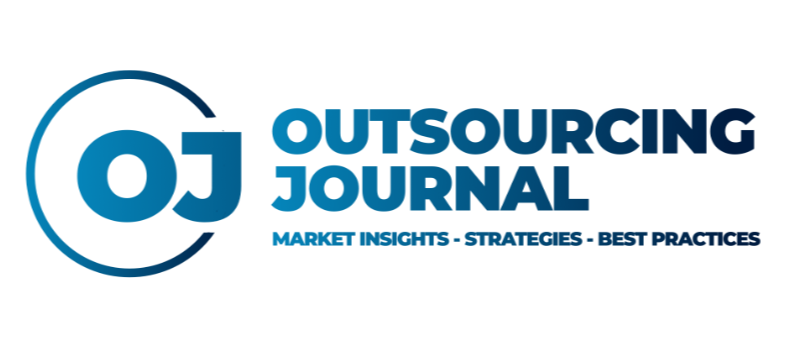We interviewed Mr. Piet Schilder, Managing Director of Execom, an IT-services company with offices in The Netherlands and in Serbia, servicing clients from Airbus till Microsoft about working mechanisms on client side, flexibility and onboarding.
Mr. Schilder, you have long years’ experiences in technology and working in the field of IT- and software services with international clients. During one of our events you were talking about the correlations between in-house and external services. Could you please share your main insights into the working mechanisms of companies on client side in the field of IT and how exactly the reduction of in-house resources towards external resources has contributed to better results for both IT and the businesses itself?
PS: There are two angles here. Firstly, the IT domain has technically become so dynamic, that companies can not simply have all relevant technologies in-house. We see at Execom that we become more and more a knowledge partner. Over the past 20 years we have developed strong expertise and best practices and built numerous solutions. So, we can give strong input on what the best technical approach for a project could be. Together with the client we choose the best solution for the job, but clearly: from simply offering hands we offer brain more and more.
Secondly, projects often require quick up and down scaling. To retain a competitive advantage or to quickly adapt to customers’ needs there are always demand peak at our clients. Adapting in-house teams to address demand peak is economically not wise, so our clients need a flexible sourcing. At Execom we call it being a ‘flexible shell’ around the clients in-house team.
OJ: Flexibility is one of the most interesting points in co-operations with external service providers. What are clients asking for today and how do you achieve flexibility in the co-operation model?
PS: Like said above, flexibility is the key. Here the size of the provider jumps in. We see at Execom that, since we are a 100+ employee company, we can cope with the demand of our different clients over time rather easily. Further, we have a certain buffer of talent that we can allocate to projects when needed.
Apart from that, we closely align with the management of our clients. That tells us what the product strategy is and how the project funnel looks like. This way we are part of the planning process and are prepared for fluctuations in the team size. This approach allows both client and Execom for a good utilization of resources and thus to remain economically healthy as a company.
OJ: Part of the German business mentality is the thought and value of specialization. Now we have been looking at both – very specialized service providers and service providers with a more generalist model. From our perspective in a number of cases we tend to recommend generalists over specialists. What are your thoughts on this, with keeping the perspective of the client in mind?
PS: In the end it is a matter of finding the right person for the job, generalist or specialist. At Execom we have both flavors. Yes, for certain domains one could go for generalists in terms of .Net or Java. However, from a provider perspective we see that with general skills it is difficult to make the difference for the client. Therefore, at Execom we have identified certain domains, like technical automation and internet of things, where we excel at and where clients can experience deep domain knowledge and speed.
OJ: What are the most common mistakes committed on client side when evaluating and entering into a co-operation with an extern partner like you? How challenging are these situations for you and what level of support in the process of evaluation, onboarding and project phase should clients be expecting in general from service provider side?
PS: It is key to align the cultures, both company and national cultures. In the end, software development is about interaction between people. So, the parties have to accept each other’s style and habits. This starts with setting expectations right, careful project implementation and close involvement of the management. Once the relationship is running we see the DNA of our client and Execom normally melting together. For this process we have active on-the-ground account management in the countries we are active in. Really to build the bridge and …keep it intact.
Further, it is a matter to start small. At Execom we call it ‘derisking’ before actually starting. A small pilot allows establishing communication lines and project management protocols. Once those are in place, one can scale up. Oh yes, and another one: ‘The proof of the pudding is in the eating.’ If there is a need for an external service provider and/or the management sees it as part of the company strategy: just try it.
OJ: Work done, all good, and now? What are your experiences with finishing projects and finalizing a co-operation?
PS: At Execom we see: a successful project is always the start of a new project. So relationships tend to stay. In our 20 years history we have only seen a few partnerships being stopped because of the crisis or change in strategy, but in other cases the partnerships stay forever.
Thank you for this interview Piet!
Piet Schilder is a chemist by education and passionate about technology, Mr. Schilder started his career in the Life Science and Medical industry. In 1999 he contacted the founders of Execom, while looking for resources to speed up the software development of a family of medical instruments. This was basically the head start of Execom as nearshore partner for companies in Western Europe. In 2006 Mr. Schilder partnered with Execom and took the role of business development and account management, bridging cultures, languages and business rationale. This approach is the basis of many long term partnerships between Execom and its clients. Contact details: Execom, Piet Schilder, pschilder@execom.eu
